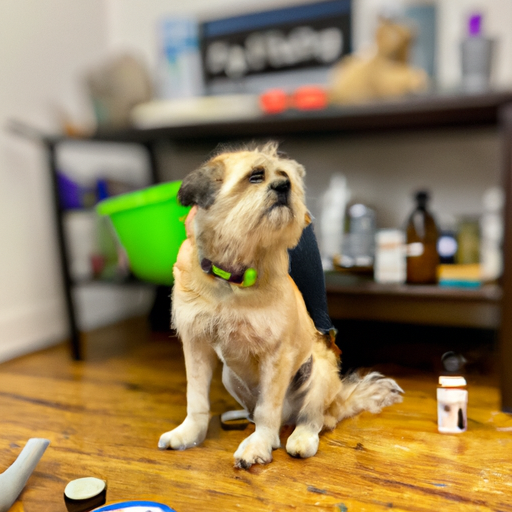As a pet owner or caretaker, nothing thrills us more than seeing our furry friends healthy and thriving. Unfortunately, fleas are a common challenge that dogs face, leading to discomfort and health issues. This article covers an in-depth analysis of what to use on dogs for fleas, offering practical advice to help you win this war.
Table of Contents
- Understanding Fleas and Their Risks
- Over-the-Counter Flea Treatments
- Prescription Flea Treatments
- Natural Remedies for Fleas
- Frequently Asked Questions
Key Takeaways
- Fleas are a common problem for dogs and can lead to various health issues.
- There are effective over-the-counter and prescription treatments for fleas.
- Natural remedies can also be used as an alternative or complementary approach.
- Regular and consistent flea treatment is essential for control and prevention.
Understanding Fleas and Their Risks
Fleas are tiny, blood-sucking pests that can cause a host of problems for your dog. They lead to intense itching, dermatitis, and can transmit tapeworms and diseases. The female flea can lay up to 50 eggs per day, making them a formidable adversary. It’s essential to understand the risks of fleas and take proactive measures to combat them.
The website One Top Dog provides detailed insights on dog’s health issues, including those caused by fleas.
Over-the-Counter Flea Treatments
Over-the-counter (OTC) flea treatments are readily available and come in various forms. Flea collars like Seresto work by releasing insecticides that kill fleas on contact. Flea shampoos and powders provide immediate relief but may not offer long-term protection.
Spot-on treatments, such as Frontline and Advantage II, are applied on the dog’s skin and provide month-long protection. However, it’s crucial to follow the manufacturer’s instructions to ensure effectiveness and safety.
Here’s a quick reference table for some popular OTC flea treatments:
| Type | Example | Duration of Effectiveness |
|---|---|---|
| Flea Collar | Seresto | 8 months |
| Flea Shampoo | Adams Plus | Immediate, Short-term |
| Spot-On | Frontline Plus | 30 days |
Prescription Flea Treatments
Prescription flea treatments are typically stronger and may tackle fleas in all life stages. Oral medications like Comfortis and Nexgard kill adult fleas and disrupt the life cycle, preventing future infestations. Topical solutions such as Revolution also offer broad-spectrum protection against various parasites.
Before using any prescription treatment, it’s crucial to consult with your vet. They can recommend the best option based on your dog’s age, breed, size, and health status. Here’s a useful link to learn more about prescription flea treatments.
Natural Remedies for Fleas
If you’re looking for a more natural approach, several remedies can help control fleas. Diatomaceous earth is a non-toxic powder that dehydrates and kills fleas. Essential oils like lavender and cedarwood can also repel fleas when used correctly.
One Top Dog has a great resource on natural flea treatments for your dog. Remember, what works for one dog might not work for another, so it’s essential to monitor your dog’s reaction to any treatment.
Frequently Asked Questions
-
How often should I treat my dog for fleas?
Regularity depends on the product you’re using. Some treatments last for a month, while others offer longer protection. Always follow the product’s instructions and consult your vet. -
Can I use home remedies to get rid of fleas?
Home remedies can help control fleas, but they might not be as effective or fast-acting as commercial products. Always use natural treatments cautiously and monitor your pet for any adverse reactions. -
Do I need to treat my home if my dog has fleas?
Yes, fleas can infest your home and re-infest your dog. Consider vacuuming regularly, washing your pet’s bedding, and using a home flea treatment.
In closing, managing fleas in dogs involves a multi-faceted approach. Whether you opt for OTC treatments, prescription medications, or natural remedies, consistency is key. A flea-free dog is a happier, healthier dog – and that’s what we all want for our canine companions!



